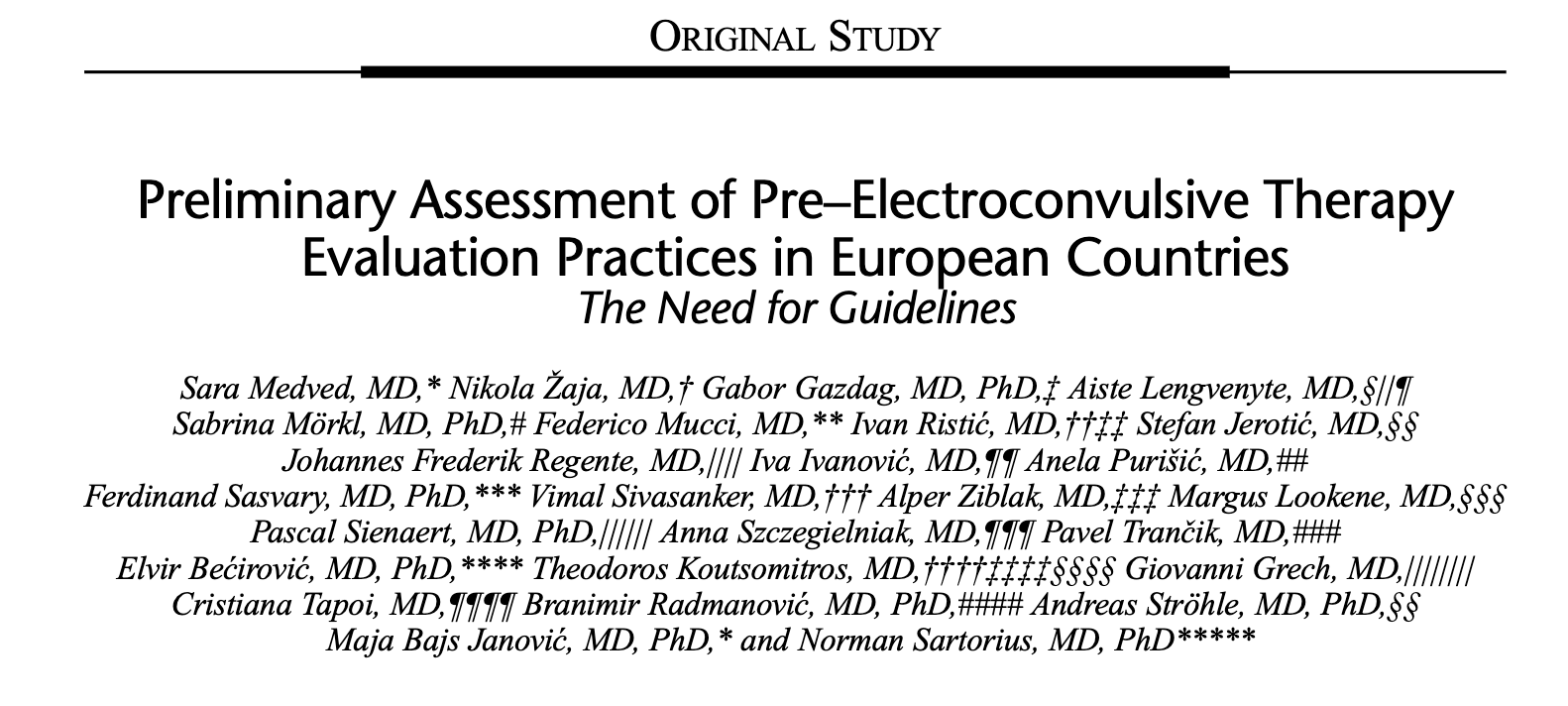Pre-ECT Evaluation: Survey of Practice in Europe
Out on PubMed, in JECT, from European colleagues, is this paper:
Preliminary Assessment of Pre-Electroconvulsive Therapy Evaluation Practices in European Countries: The Need for Guidelines.
J ECT. 2022 Apr 23. doi: 10.1097/YCT.0000000000000854. Online ahead of print.PMID: 35462388
The abstract is copied below:
Objectives: Pre-electroconvulsive therapy (ECT) evaluation is an essential part of ECT preparation, a standard treatment in the psychiatric field. However, no routine pre-ECT evaluation has been published so far. This preliminary study aimed to explore different practices in pre-ECT evaluation across European countries.Methods: The data were collected as a snowball sample approach using an online survey from September 2019 to April 2020. The final analysis included data from 18 clinics placed in 16 European countries.
Results: Regulations on the pre-ECT evaluation were found in 9 countries. All clinics reported doing complete blood count, serum electrolytes, and renal function analysis as a part of regular laboratory testing, alongside with a cardiovascular assessment. Ten clinics reported using psychiatric scales. Six clinics reported doing a cognitive assessment, of which all had regulations on the pre-ECT evaluation. Not one evaluation had the same sets of procedures and diagnostics.
Conclusions: The differences in assessment approaches mirror high variability of the pre-ECT evaluation practice across Europe. Cognitive assessment and objectification of psychiatric symptoms should be a regular part of the pre-ECT evaluation because of the monitoring of the most common adverse effect and observing the clinical response to ECT. Standardization of the pre-ECT evaluation and ECT in general would remove criticisms and opposition to the treatment, make it based on the best of our knowledge, and provide a method respectful of patients' best interests and rights.
Trial registration: ClinicalTrials.gov NCT04335916.
The paper is here.
And from the text:
This turns out to be a very interesting paper, not so much for the survey result details, but for the overarching concepts of the need/desirability to standardize ECT practice. And I thought it was going to be about how many clinics still had the archaic practice of ordering pre-ECT spine x-rays!
Standardizing the pre-ECT evaluation and, even more importantly, ECT technique, is a laudable goal. It certainly is doable, but also easier said than done; our field's track record in harmonizing views about electrode placement, as an example, is not stellar...
This article breaks down the pre-ECT evaluation into consent, medical, and psychiatric evaluation (symptoms and cognition), a useful way to approach the issue.
It would be time well spent for all ECT practitioners to read this as a thought piece, in preparation for international efforts to standardize practice, as called for by these authors. Kudos to this large team of European colleagues for presenting us with this challenge.





Comments
Post a Comment